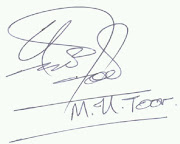A joy! Fervent joy! New horizons discovered. I felt.
For it is so by seeing 'things' from different places or levels, or angles (to satisfy abstraction). You'll feel afresh! expanded! and more healthy. Abdullah Yusuf writes to describe this feeling in this way, "It is like a traveller climbing a mountain: the higher he goes, the farther he sees. from a literary point of view the poet Keats has described his feeling when he discovered Chapman's Homer:
Then I felt like some watcher of the skiesWhen a new planet swims into ken,Or like stout Cortex when eagle eyesHe stared at the Pacific - and all his menLooked at each other with a wild surmise -Silent, upon a peak in Darien.
The sense of wonder in the opening of our eyes! The humble exaltation!
Who could have observed it than a poet or a writer or an artist, and 'things', the marrow of life, we general beings tend to avoid or even deliberately overlook? That is why I like to call these men/women eyes of societies, as did poet Iqbal. They are effective observers. But more than that they are creators of feelings, effective feelings, but more than just feelings, concrete in reason and abstract in essence. Its only the sole work of their 'imagination' and their ways of looking, seeing and judging, interpreting. Their imagination when translated into words, fills our existence with pathos of nearness to reality, its observation, open sight, clear vision and deep sense of reflection. Yet, I'm to ask: Who are they?




















